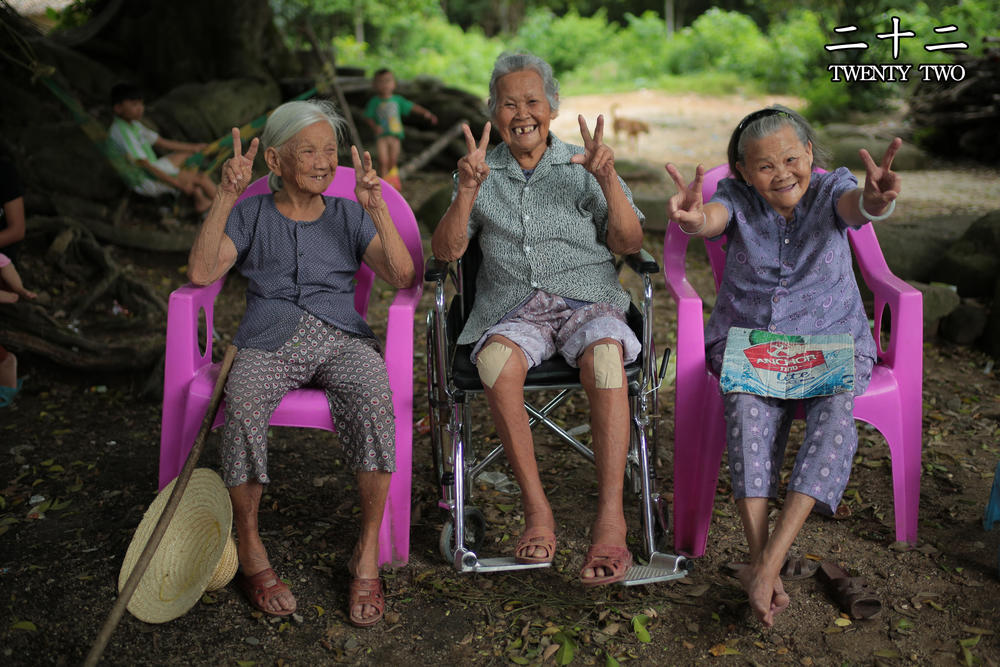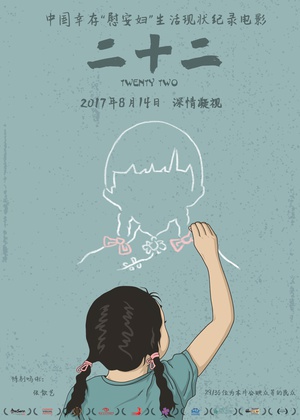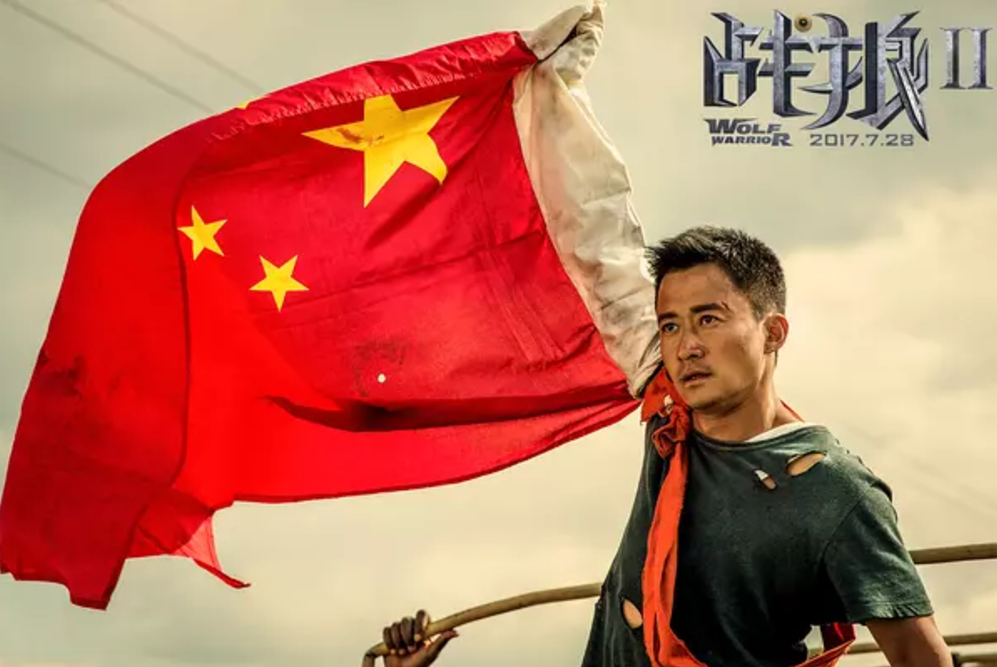Documentary on World War II ‘comfort women’ might become most profitable Chinese movie of all time
Pang-Chieh Ho gives you the latest news from one of China’s most dynamic industries.

When Twenty-Two (二十二 èr shí èr), a documentary that interviews 22 surviving World War II sex slaves, debuted in mainland Chinese theaters on August 14, nobody had expected that it would be such a big hit with Chinese moviegoers. Made from a paltry budget of 3 million yuan ($450,000), Twenty-Two managed to buck expectations. Not only is it the first documentary to make more than 100 million yuan ($15 million) at China’s box office, according to Mtime (in Chinese), but if it ends up grossing 300 million yuan ($45 million), a goal that analysts are confident the documentary will attain, it will also become the most profitable Chinese movie of all time (in Chinese).

This dark horse of a film has had a somewhat turbulent production history. While filming and interviewing the octogenarian survivors took around two months, the movie was waylaid for several years due to a lack of financing, according to The Paper’s interview (in Chinese) with Twenty-Two’s director, Guo Ke 郭柯. When financing finally came through, a large part of it was in the form of crowdsourcing, with over 7,000 people contributing 1 million yuan ($150,000) to the movie.
So how did this documentary — one that eschews sensationalism in favor of quiet documentation of the everyday lives these former “comfort women” are now leading — become a force to be reckoned with at the box office? Yuledujiaoshou points out (in Chinese) that strong word of mouth and high critical ratings have been essential to Twenty-Two’s success, while personal recommendations from many industry figures, including director Feng Xiaogang 冯小刚 and actress Zhang Xinyi 张歆艺, who invested 1 million yuan ($150,000) in the movie, helped boost the movie’s exposure. Also, the movie’s shrewd choice of a premiere date — on the eve of the International Memorial Day for Comfort Women and the anniversary of Japan’s surrender in World War II — dovetailed with sentiments of patriotism and nationalism that had already been stoked by another film, Wolf Warriors 2 (战狼二 zhàn láng èr).
China box office of Wolf Warriors 2 surpasses domestic gross of Avatar
Speaking of Wolf Warriors 2 — the blockbuster action movie about a Chinese ex-Special Forces operative fighting insurgents in Africa in fiery, Rambo-like fashion — it has continued to make great strides at the box office. In early August, Wolf Warriors 2 overtook Stephen Chow’s fantasy comedy The Mermaid to become the highest-grossing movie ever in China (in Chinese). On August 14, Mtime reported (link in Chinese) that the movie was now one of the world’s top 100 highest-grossing movies of all time, marking the first time a non-English movie has made the list.
According to Forbes, the China box office of Wolf Warriors 2 has now surpassed the domestic gross of James Cameron’s Avatar. That is, of course, if you’re counting the online ticketing fees, which has been included in China’s box office tabulation system since the beginning of 2017. However, even without the 8 percent upcharge of service fees, Wolf Warriors 2 is still the third-highest-grossing movie of all time in a single territory, behind Star Wars: The Force Awakens and Avatar and ahead of Titanic.

The movie’s massive popularity in China has seemingly left little room for its detractors to voice their criticism. This Wednesday, Radio Free Asia reported that Yin Shanshan 尹珊珊, a lecturer at the Central Academy of Drama, may have been fired after she gave Wolf Warriors 2 a negative review (in Chinese) on the online movie talk show A Show With a View. In the video, Yin denounced the movie for its gratuitous portrayals of violence and the director’s disregard for how the movie might affect the mentality of young children. Yin also speculated that the director might be “sadistic” or “perverted,” judging by the excessive amount of brutalities and carnage in Wolf Warriors 2. The disappearance of Yin’s verified status as a lecturer on Weibo, as well as an open letter (in Chinese) from netizens asking for her removal from the school, have led many to speculate that Yin may have been fired from the Central Academy.
China officially imposes restrictions on outbound deals in film and entertainment
On August 18, the National Development and Reform Commission and the State Council issued a notice (link in Chinese) tightening rules on outbound investments. According to the rules, foreign deals made in the sectors of film, entertainment, sports, hotels, and real estate are now officially restricted. CNBC points out that since last year, China’s administration has ramped up controls on capital outflow in order to prevent financial risk and ensure the strength of the currency and that, in response, outbound deals have dropped 40 percent in the first half of 2017.
China’s official clampdown on overseas investment in the film and entertainment industries marks the end of an era of aggressive acquisition of foreign movie assets by Chinese companies, most notably by real estate conglomerate Dalian Wanda. For the past five years, Wanda, with its $2.6 billion purchase of AMC Entertainment and $1.9 billion acquisition of Legendary Entertainment (paywall), has been viewed as one of the most prominent examples of China’s forays into Hollywood. The tide, however, has turned for Wanda, and last Monday, an opinion piece (in Chinese) in People’s Daily, China’s state-controlled media, named Wanda as one of the companies responsible for potentially endangering China’s financial system, although it also made note that Wanda was moving in the right direction now with its new asset-lite strategy.





